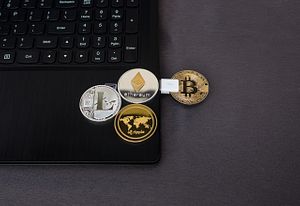In March, South Korea passed new legislation to strengthen the supervision of virtual assets. The new law, however, has resulted in pushback by banks and concerns that many of the altcoins and cryptocurrency exchanges that have sprung up in South Korea could be put out of business.
Under the new legislation all virtual asset management providers, which includes cryptocurrency exchanges and other virtual asset service providers, must register with the Korea Financial Intelligence Unit (KFIU) to operate in South Korea. The KFIU is the arm of the Financial Services Commission (FSC) responsible for anti-money laundering and exchanges would be required to report suspicious financial activity to it.
In order to register, exchanges are required to be certified by the Information Security Management System, ensure their customers have real name back accounts, and ensure that their CEO and board members have not been convicted of a crime. The law also requires exchanges to provide proof of adequate levels of deposit insurance to cover losses from hacks.
In January, South Korea also began enforcing a requirement that the name on cryptocurrency investors’ bank account match the name on their account at a cryptocurrency exchange in order to deposit money into their virtual wallets. With exchanges now required to ensure their customers have real name bank accounts, they are also required to partner with domestic banks to establish real name accounts for their clients.
South Korean banks, however, have been reluctant to partner with cryptocurrency exchanges as a result of negative comments by regulators on virtual assets and the risk of financial crimes on cryptocurrency exchanges. Instead banks are looking to limit their liability for cryptocurrencies as the government tightens regulation. They have asked the government to relieve them of liability for money laundering or other financial crimes on cryptocurrency exchanges.
The reluctance of banks to partner with cryptocurrency exchanges means that all but a few South Korean cryptocurrency exchanges could be forced out of business. To continue operating, exchanges need to partner with a South Korean bank, but with South Korean banks unwilling to take on the risk that comes from dealing with cryptocurrency exchanges, they will be unable to register with the government or withdraw money for cryptocurrency trading after September 24.
The banking requirements under the new law are in line with recommendations by the Financial Action Task Force on virtual assets regarding know your own customer rules. These rules are designed to prevent money-laundering and other financial crimes. However, the prospect of closure for a number of exchanges has many considering suing the government and the FSC.
The deadline is also pushing cryptocurrency exchanges to take action. The top exchanges in South Korea have begun to delist or place warnings on virtual assets they deem to be risky. The step has also resulted in legal action. Upbit’s decision to delist 24 cryptocurrencies has resulted in a series of lawsuits against the cryptocurrency exchange.
Adding to the pressure on cryptocurrencies in South Korea, the government confirmed that it will move forward with a previously announced 20 percent capital gains tax on transactions in virtual assets next year. Seoul has also taken steps to prohibit exchange issued coins, and has begun to seize the crypto assets of tax dodgers. The Bank of Korea is also planning to initiate a pilot project for the development of central bank digital currency (CBDC), which could lessen the appeal of virtual assets.
The decision to strengthen regulations on virtual assets comes with good reasons. South Korea is estimated to account for 10 percent of global crypto transactions. The intensity of trading has seen cryptocurrencies such as Bitcoin trade at a premium of 20 percent in South Korea, while 90 percent of trading is in altcoins.
The largely unregulated industry has been a source of both criminal activities and financial crimes. According to estimates by South Korean law enforcement agencies, cryptocurrency-related crimes have resulted in losses of $4.9 billion since 2017. They are also popular targets for North Korea’s financial crimes.
South Korea is not alone in tightening regulations on virtual assets. The Basel Committee on Banking Supervision has called for cryptocurrency to face the strongest capital rules of any asset. The Bank for International Settlements, which is made up of central banks, has noted that cryptocurrencies “work against the public good” and has raised concerns about the use of cryptocurrencies in money laundering and financial crimes. The EU is considering proposals to regulate cryptoassets, while the United States is calling for greater regulation of cryptoassets and will now require that transfers of $10,000 or more in cryptoassets to be reported to the IRS.
The U.S. and EU are not alone in taking stronger measures against virtual assets. China has banned the use of cryptocurrency for transactions and is cracking down on mining operations. The U.K., Japan, and Germany have all halted activities or issued warnings about Binance, one of the world’s largest cryptocurrency exchanges. Bianance’s problems in the U.K. result from a 2022 decision to require cryptocurrency exchanges to register with the Financial Conduct Authority (FCA) and adhere to anti-money laundering rules. Ninety percent of cryptocurrency applicants in the U.K. have dropped their applications to register with the FCA rather than meet the anti-money laundering rules.
As virtual assets become more popular, they are increasingly coming under scrutiny by regulators to ensure that this new asset class does not become a haven for money laundering and financial crimes. As South Korea’s efforts to bring virtual assets into the mainstream regulatory infrastructure demonstrates, the process will be challenging, especially with banks reluctant to shoulder the burden of potential financial crime. The end result, however, will be a more transparent system that is safer for consumers.

































